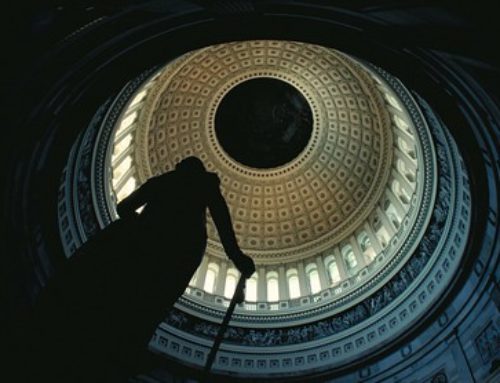Spring cleaning is underway in the House, and they’re not just tossing out earmarks. Some motivated lawmakers are wiping down the grimy windows through which we peer into the inner workings of Congress, and what we see is illuminating.
House Armed Services Chairman Buck McKeon (R-CA) recently announced that chapters of this year’s National Defense Authorization Act would be available on the committee’s web site 24 hours before subcommittee markups. The NDAA doesn’t usually generate much ink or attention even though it outlines the strategy and spending for our entire national security apparatus, including nuclear weapons. This lack of attention is primarily due to the fact that the final checks are cut in the appropriations committee, but also because outsiders couldn’t see the bill until after the armed services committees had their way with it. Markups were conducted in closed session, with legislative text becoming available only days after its approval by Congress.
This year, however, McKeon vowed to get the bill before the public’s eyes before this process got underway. Visitors to the web site will find a resource page with links to each subcommittee’s markup text, press release and amendments. There’s even a link to YouTube videos of the markup hearings. This builds on the good work the committee did earlier constructing an apparently earmark-free system to draft and modify the bill.
Unfortunately the situation is much different in the Senate, where efforts to bring the bill out from behind closed doors have met stiff resistance. Proposals repeatedly introduced by Sen. Claire McCaskill (D-MO) to have the bill approved in open session have failed miserably. The opposing argument, held by Senate Armed Services Chairman Carl Levin (D-MI), is that the bill contains too much sensitive information for public ears and eyes—all the more reason for the public to have input, in our opinion. Take care of the classified portions behind closed doors (as the House is) and debate the rest in the daylight.
Don’t get us wrong—disclosure doesn’t make everything in the bill palatable, and there are plenty of items in there we wish were not. One example is the $100 million added for the Ground Based Missile Defense program, which failed its last two tests and needs to take a breather until its technologies become more stable. Another is the provision that conditions additional funding for the F-35 Joint Strike Fighter on DOD coughing up money for an alternate engine program that the Defense Department doesn’t want and formally canceled last week (engine-maker General Electric is spending its own money to keep the engine alive until its Congressional champions can put funding back in the bill).
Still, increased transparency allows taxpayers to let lawmakers know their displeasure with such provisions before the bill goes to full committee next Wednesday and then on to the House Floor. Posting the hundreds of amendments prevents them from appearing and vanishing in the blink of an eye, as they did in the past. Wastebasket readers will have four days, for example, to let Chairman McKeon know what they think of his planned amendments to roll back a freeze on Tricare premiums (thumbs up) and add money for the alternate engine (thumbs down).
Now the Senate needs to follow the House example, get out the Windex and start cleaning some windows and opening some doors. This year should prove that even the most tightly sealed chambers can benefit from some sunlight.
###
TCS Quote of the Week:
“Frankly, I'm not interested in talking about whether the House is going to pass a bill that the Senate shows no interest in. I'm not interested in laying down more markers. I'm interested in solutions.”
– House Ways and Means Chairman Dave Camp (R., Mich.), referring to a new round of high-level budget negotiations opened Thursday. The Wall Street Journal







Get Social